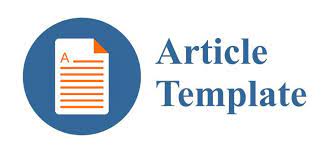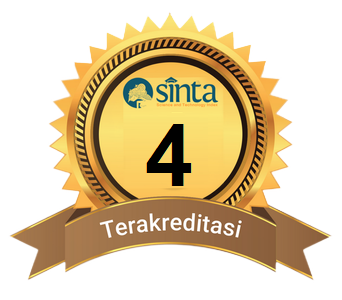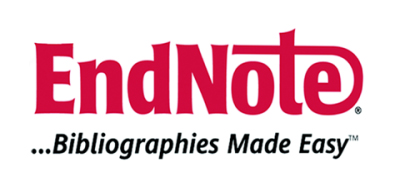Peer Reviewer Guidance
General Guidance
The primary purpose of peer review is providing the Editor with the information needed to reach a fair, evidence-based decision that adheres to the journal’s editorial criteria. Review reports should also help authors revise their paper such that it may be accepted for publication. Reports accompanied by a recommendation to reject the paper should explain the major weaknesses of the research; this will help the authors prepare their manuscript for submission to a different journal.
Peer reviewers should assess papers exclusively against the journal’s criteria for publication.
The following conventions should be respected:
- Reviewers should review the peer review policy of the Journal before revealing their reviewer role.
- Reviews should be conducted objectively.
- Personal criticism of the author is inappropriate, as are defamatory/libelous remarks.
- Reviewers should express their views clearly with supporting arguments and references.
- Reviewers should declare any potential competing interests.
- Reviewers should decline to review manuscripts with which they believe they have a competing interest resulting from competitive, collaborative, or other relationships or connections with any of the authors, companies, or institutions connected to the papers.
- Reviewers should respect the confidentiality of material supplied to them and not discuss unpublished manuscripts with colleagues or use the information in their own work.
We ask reviewers the following types of questions, to provide an assessment of the various aspects of a manuscript:
- Key results: Please summarize what you consider to be the outstanding features of the work.
- Validity: Does the manuscript have flaws which should prohibit its publication? If so, please provide details.
- Originality and significance: If the conclusions are not original, please provide relevant references.
- Data & methodology: Please comment on the validity of the approach, quality of the data and quality of presentation. Please note that we expect our reviewers to review all data, including any extended data and supplementary information. Is the reporting of data and methodology sufficiently detailed and transparent to enable reproducing the results?
- Appropriate use of statistics and treatment of uncertainties: All error bars should be defined in the corresponding figure legends; please comment if that’s not the case. Please include in your report a specific comment on the appropriateness of any statistical tests, and the accuracy of the description of any error bars and probability values.
- Conclusions: Do you find that the conclusions and data interpretation are robust, valid and reliable?
- Inflammatory material: Does the manuscript contain any language that is inappropriate or potentially libelous?
- Suggested improvements: Please list suggestions that could help strengthen the work in a revision.
- References: Does this manuscript reference previous literature appropriately? If not, what references should be included or excluded? Attempts at reviewer-coerced citation will be noted against your record in our database.
- Clarity and context: Is the abstract clear, accessible? Are abstract, introduction and conclusions appropriate?
- Please indicate any particular part of the manuscript, data, or analyses that you feel is outside the scope of your expertise, or that you were unable to assess fully.
Data Notes
A peer reviewer’s report should provide members of the Editorial Board with the information needed to reach a decision, and should instruct authors on how they can strengthen their paper to the point where it may be acceptable for publication.
Reviewers should feel free to request additional data sets or information when needed to support the data. Reviewers, however, should avoid asking for extensive follow-up experimentation, or confirmation of specific hypotheses or interpretations, which would fall outside the scope of a data note manuscript. Indeed, reviewers should ask authors to remove in-depth analyses or new scientific conclusions from submitted data notes
Evaluation of a data note should not be based on the perceived impact or novelty of the findings associated with the datasets. The peer-review process should remain focused on data quality and reusability, not specific interpretations.
When preparing a report, we ask reviewers to consider and comment on the following questions:
Experimental rigour and technical data quality
- Were the data produced in a rigorous and methodologically sound manner?
- Was the technical quality of the data supported convincingly with technical validation experiments and statistical analyses of data quality or error, as needed?
- Are the depth, coverage, size and/or completeness of these data sufficient for the types of applications or research questions outlined by the authors?
Completeness of the description
- Are the methods and any data-processing steps described in sufficient detail to allow others to reproduce these steps?
- Did the authors provide all the information needed for others to reuse this dataset or integrate it with other data?
- Is this Data Note, in combination with any repository metadata, consistent with relevant minimum information or reporting standards?
- Are the reasons for collecting the data clear from the Objectives section?
- Are the limitations of the data clear from the Limitations section?
Before you submit your report, please take a moment to read it through and put yourself in the place of the authors. How would you feel if you received this report? Would the tone offend you? Is it courteous and professional? Are there unnecessary personal remarks or antagonistic comments about the authors or their competitors? Please note that the Editor reserves the right to remove any inappropriate language from your report.
Reports do not necessarily need to follow this specific order but should document the peer reviewer’s thought process. Some journals have a set of questions that reviewers will need to specifically address. All statements should be justified and argued in detail, naming facts and citing supporting references, commenting on all aspects that are relevant to the manuscript and that the reviewers feel qualified commenting on. Not all of the above aspects will necessarily apply to every paper, due to discipline-specific standards. When in doubt about discipline-specific peer-reviewing standards, reviewers can contact the Editor for guidance.



__.png)
















